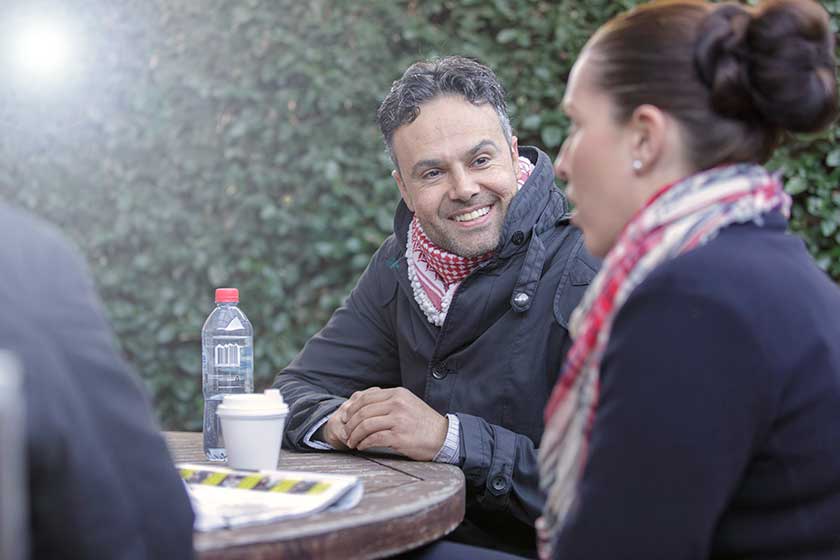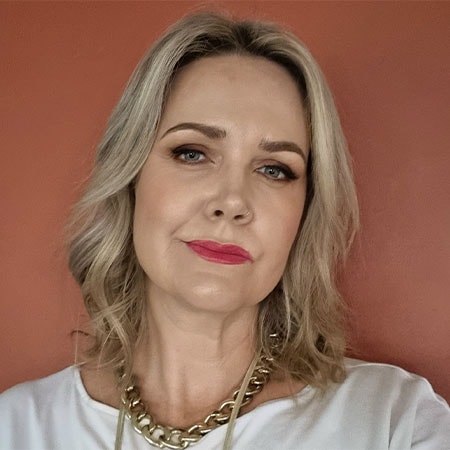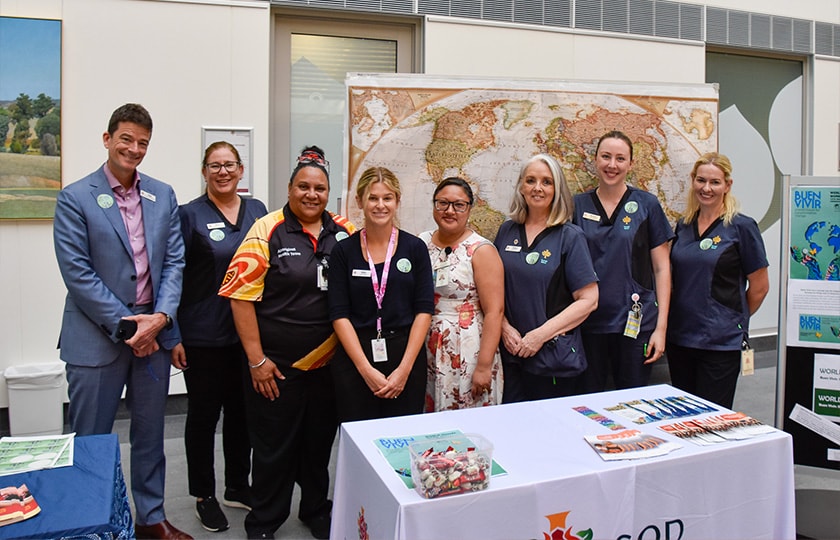Is it right to visit? Can you call or is it best to stay away? Consumer Representative Ryan D’Lima explains how you can provide support to your loved ones when they are seeking care.
When someone comes to hospital for mental health care they are able to take time out from their everyday lives to address their illness and develop the skills they need to manage it.
This often means they are separated from their loved ones, but it doesn’t mean you can’t stay in contact.
In fact, family and carer involvement in care planning and treatment is very important and it can enhance your loved ones outcomes.
We encourage all of our patients to include support people in their care planning process and identifying those people who will help them towards recovery.
When to visit?
You can visit and call your loved one in hospital, but it is always best to call ahead to make sure they aren’t in therapy sessions or too tired.
It is also important to remember that your loved one are receiving a lot of information and may experience a range of emotions during their hospital stay. Sometimes having visitors can be too stressful or they are worried about the questions you may ask. So it is best to check before you visit and let your loved one share what they want with you, when they are ready.
With permission from your loved one and in line with our privacy policy, we may share information about their treatment with you or in case of emergency we may contact you too.
This may involve sharing your loved one’s journey with you and teaching you strategies to help them on this journey towards recovery.
Should I meet with the clinicians too?
With consent, we can also arrange a meeting with you, a member of the treating team and your loved one so you can feel more prepared to support your loved one or to address any areas of concern.
Supporting your loved one when they leave hospital
One of the most important ways you can show your support is when your loved one is ready to leave hospital. This can be a very vulnerable time as they are facing the prospect of putting all their management skills to the test with less support.
If you are the primary support person for your loved one, come to hospital at discharge time and encourage them to continue their ongoing hospital support such as follow up appointments with their psychiatrist or outpatient groups.
From a practical point of view, leaving hospital alone and going home to an empty house with overgrown lawns, an overflowing letterbox and no groceries can amplify feelings of loneliness and shock of diving right back into the real world.
If there is anything that you can do to maintain the home environment it will help make the transition softer and less overwhelming. Also if your loved one is intending to abstain from a particular substance after hospitalisation, it may be helpful to remove substance from the house before they come home.
Anything else?
If you are looking to support your loved one further, it’s simple – keep in touch, invite them to organised activities and ask them how they are, just as you would if they had a physical condition.
If you aren’t sure how you can help, look into family and carer resources. We recommend:
- Lifeline (24-hour telephone counselling)
Tel: 13 11 14 -
Relationships Australia
Tel: 1300 364 277 - Family Relationships Online
Tel: 1800 422 737 - Carers Australia
Tel: 1800 242 636 - Mental Illness Fellowship







